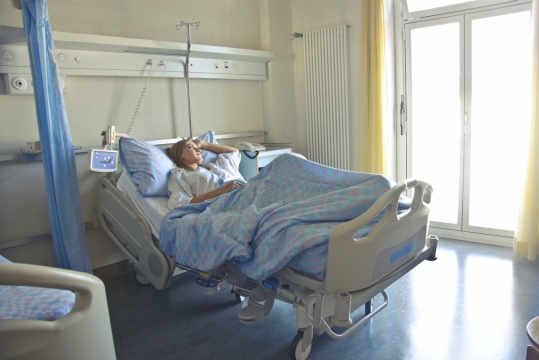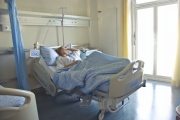Partial Hospitalitation: What Is It and Who Is It For?

In the realm of mental health care, a versatile and increasingly recognized approach is gaining prominence: Partial Hospitalization (PHP). This nuanced model serves as a vital middle ground between the intensity of inpatient care and the flexibility of outpatient services.

To truly understand the significance of PHP, let's delve into what it is, its key components, and most importantly, who stands to benefit from this evolving paradigm of mental health support.
What is PHP?
Partial Hospitalization, often abbreviated as PHP, is an intensive, structured mental health program that provides comprehensive care and unique day treatment. Individuals enrolled in PHP attend a treatment center during the day, receiving therapeutic interventions tailored to their specific needs, and return home in the evenings.
Individual Psychotherapy
A cornerstone of PHP is individual psychotherapy. Tailored one-on-one sessions with a qualified mental health professional allow for a personalized exploration of the individual's challenges, strengths, and goals. This focused attention helps to uncover underlying issues and develop coping mechanisms for ongoing mental health management.
Group Therapy
Group therapy is another integral component of PHP, fostering a sense of community and shared experience. Group sessions provide individuals with a platform to connect, share, and learn from others facing similar challenges. The collaborative environment enhances interpersonal skills and promotes a supportive community.
Outpatient Services
While PHP provides an intensive level of care during the day, it maintains the flexibility of outpatient services. This means that individuals can return to their homes and communities in the evenings, applying the skills and insights gained during treatment in their real-world environments.
Transitional Housing
Some PHP programs may include transitional housing options for individuals who require additional support beyond the treatment center. Transitional housing serves as a structured environment where individuals can continue their recovery journey with increased independence while still benefiting from a supportive community.

6. Who is it for?
Partial Hospitalization is designed for a diverse range of individuals facing mental health challenges. It is particularly beneficial for individuals moving from more intensive inpatient care to a less restrictive environment. It offers continued support while facilitating a smoother reintegration into daily life. Also, PHP is suited for those who need more intensive treatment than traditional outpatient care can provide but do not require the 24/7 supervision of inpatient care, PHP offers a balanced solution. In addition to that, PHP is well-suited for individuals grappling with both mental health and substance use disorders. Integrated programs address the complexities of dual diagnoses, providing tailored support for these intertwined challenges.
Final Word
Partial Hospitalization emerges as a beacon of hope in the landscape of mental health care. Tailoring intensive, structured support to individual needs, PHP offers a comprehensive approach that fosters healing and growth. As we navigate the evolving terrain of mental health awareness, understanding the significance of PHP is vital. It represents a commitment to providing nuanced, individualized care that empowers individuals on their journey to recovery. By recognizing the diverse needs of those seeking solace and healing, PHP contributes to a future where mental health support is not only accessible but also attuned to the unique strengths and challenges of each individual.





